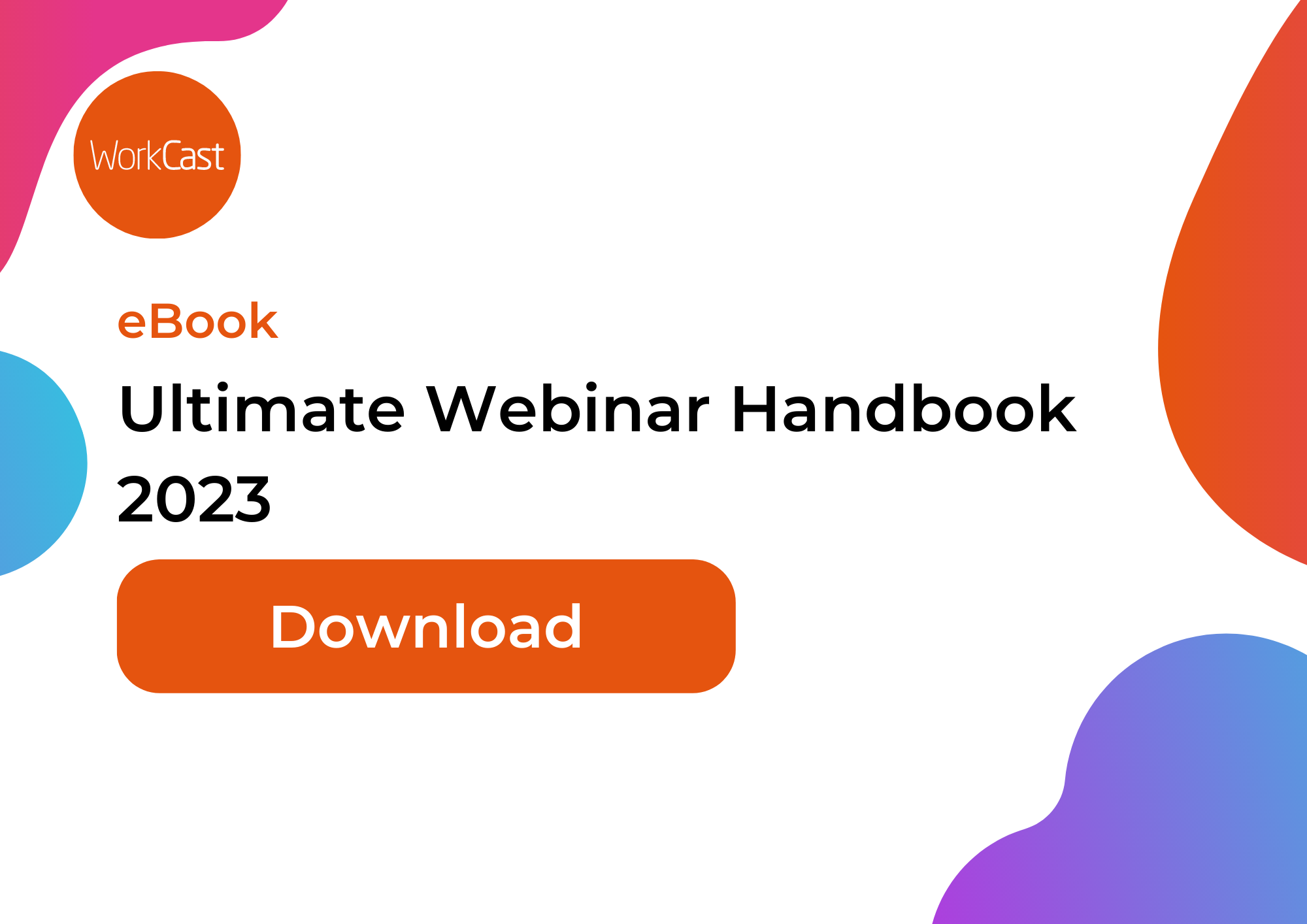Introduction to Using Webinars for Lead Generation
It is now more important than ever for marketers and sales teams to create and engage with meaningful leads. In a world with lots of noise and digital messages, webinars can be an incredibly effective tool to help you stand out. With webinars, businesses can gain access to a wide variety of potential customers, while also providing an engaging platform to make a lasting impression. In this blog post, we'll discuss the benefits of using webinars for lead gen. From increased visibility and higher engagement rates to targeting the right audience and more, webinars offer marketers and sales teams a powerful lead-generation tool.
1) Increase in engagement with the target market
One of the key benefits of using webinars for lead generation is the significant increase in engagement it provides. Unlike other forms of content marketing, webinars offer a unique interactive experience that captures the attention and interest of potential leads.
When marketers and sales teams host webinars, they have the opportunity to engage with their audience in real-time, allowing for immediate feedback and discussion. This level of interaction not only keeps participants engaged throughout the webinar but also encourages active participation and involvement during and after the event.
With a mix of engagement tools such as polls, resources, panel discussions, and question and answer sessions you can really engage at that personal leave with potential leads and help nurture them through the opportunity level.
2) Opportunity to showcase expertise to leads
Webinars provide an excellent opportunity for associations, marketers and sales teams to showcase their expertise and knowledge. By presenting valuable information and addressing common pain points or challenges, webinars help establish these professionals as trusted authorities in their field. This helps to build credibility and trust with potential leads, increasing the likelihood of them becoming customers in the future. Whether it's through live presentations or, simulive content or purely on-demand recorded webinars, online events give marketers the chance to demonstrate their expertise and provide valuable insights to attendees, setting themselves apart from competitors.
3) High lead conversion rates
One of the major benefits of using webinars for lead generation is the potential for high conversion rates. Webinars provide a platform for organisers to showcase their USP and persuade attendees to take action. When done right, webinars can effectively convert leads into customers. Unlike other forms of content marketing, webinars allow for real-time interaction, where attendees can ask questions, provide feedback, and engage with the presenter. This level of engagement leads to a higher likelihood of conversion.
Webinars also provide a focused environment for marketers to present their topic and address any objections or concerns that potential customers may have. The attendees have chosen to attend, meaning that they are already somewhat engaged with the proposed content topic. By delivering valuable and informative content during the webinar, marketers can build trust and credibility with the audience, making the leads more likely to take the desired action.
4) Cost-effective lead generation
Webinars for lead generation is extremely cost-effective. Traditional methods of generating leads, such as large advertising campaigns, attending conferences or hosting in-person events, can be expensive and time-consuming. With webinars, marketers and sales teams can reach a global audience without incurring any travel or expenses.
Additionally, webinars require less budget for promotion compared to other forms of lead generation. With social media platforms and email marketing, marketers can easily promote their webinars to a targeted audience without breaking the bank. They can leverage their existing email lists, social media followers, and online communities to promote the webinar and attract potential leads.
Moreover, webinars eliminate the need for printed materials or physical resources, further reducing costs. All the information and resources can be provided digitally, making it easily accessible for participants. This also makes it convenient for marketers to follow up with leads by sending them relevant materials or recording of the webinar.
5) Reach a wider audience
You can easily reach a wider audience when using webinars for lead generation. Unlike in-person events that are limited by the location of attendees, online events can be accessed by anyone from anywhere. This means that marketers can attract potential leads from all corners of the globe.
Webinars also provide on-demand content, meaning that attendees can watch the presentation at their convenience, from any location. This allows for a larger number of attendees to participate, increasing the potential for generating new leads.
Webinars offer accessibility tools such as captions and translations, which means that businesses can reach an accessible audience or those who don't speak the same language. This expands the reach of the content and provides an opportunity for more diverse leads.
6) Provide personalised content
Marketers can create highly personalised content in their lead generation webinars, they can segment their audience and create targeted webinar content that resonates with each group. This level of personalisation not only increases engagement but also improves the overall quality of leads generated from webinars. By tailoring the content to specific interests and needs, leads are more likely to feel connected to the brand and move further down the sales funnel. Additionally, with interactive features like live polls and Q&A sessions, webinars provide opportunities for even more personalised engagement with potential customers.
7) Collect valuable data
It is vital for any lead generation strategy to ensure the ability to collect valuable lead data. By hosting webinars, marketers and sales teams can gather important information about their leads, such as their contact details, preferences, and interests. This data can then be used to personalise future marketing campaigns and provide targeted content that resonates with the audience. Additionally, the data collected from webinars can help marketers better understand their target audience, allowing them to refine their strategies and improve their lead generation efforts.
For tips on how to use webinars in your lead generation strategy, download our Ultimate Webinar Handbook.
Share this
You May Also Like
These Related Stories
.jpg)
What Does a Good Quality Lead Look Like?

Unlocking the Power of Webinars for Demand Generation: Tips and Tricks



